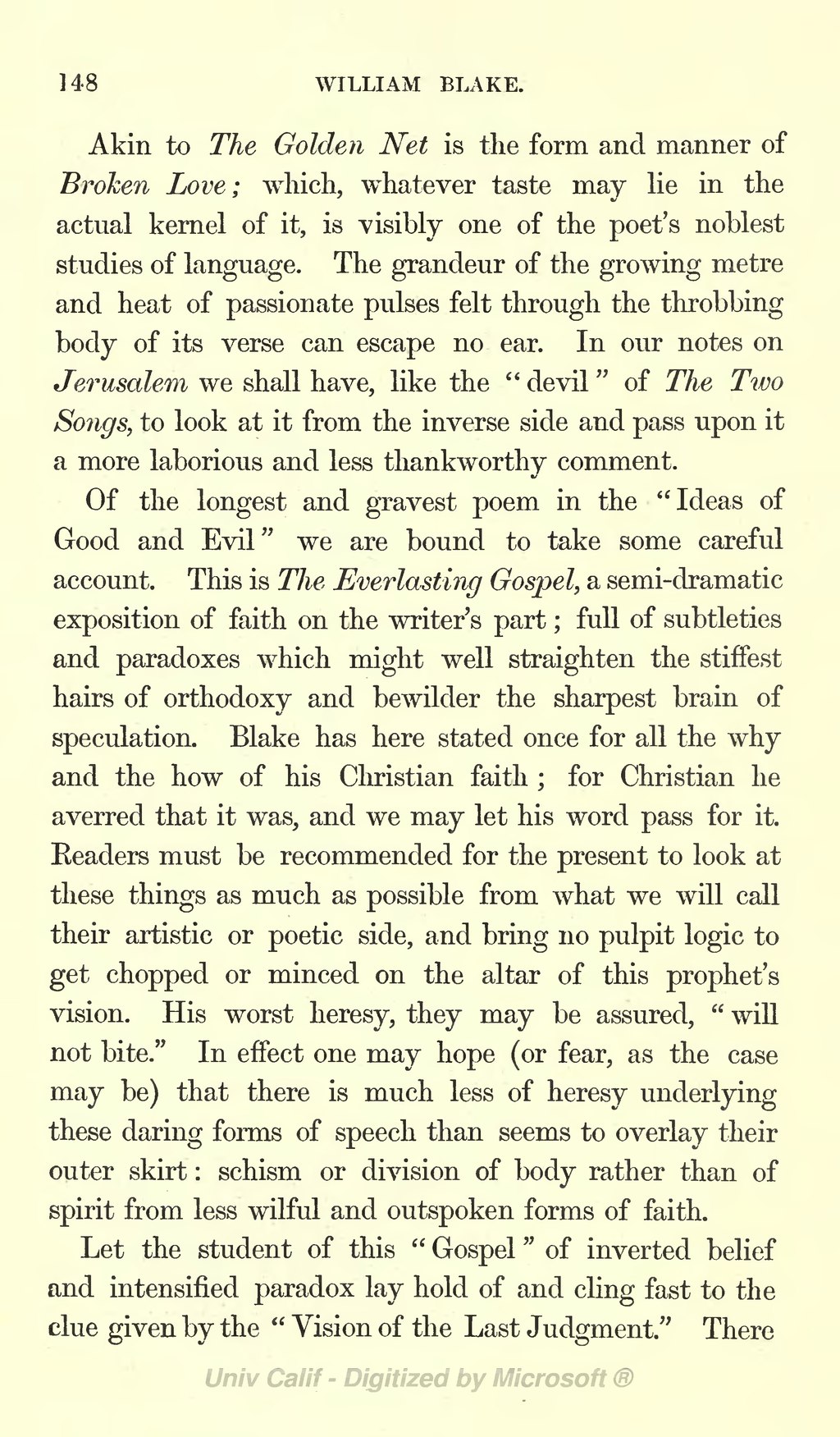Akin to The Golden Net is the form and manner of Broken Love; which, whatever taste may lie in the actual kernel of it, is visibly one of the poet's noblest studies of language. The grandeur of the growing metre and heat of passionate pulses felt through the throbbing body of its verse can escape no ear. In our notes on Jerusalem we shall have, like the "devil" of The Two Songs, to look at it from the inverse side and pass upon it a more laborious and less thankworthy comment.
Of the longest and gravest poem in the "Ideas of Good and Evil" we are bound to take some careful account. This is The Everlasting Gospel, a semi-dramatic exposition of faith on the writer's part; full of subtleties and paradoxes which might well straighten the stiffest hairs of orthodoxy and bewilder the sharpest brain of speculation. Blake has here stated once for all the why and the how of his Christian faith; for Christian he averred that it was, and we may let his word pass for it. Readers must be recommended for the present to look at these things as much as possible from what we will call their artistic or poetic side, and bring no pulpit logic to get chopped or minced on the altar of this prophet's vision. His worst heresy, they may be assured, "will not bite." In effect one may hope (or fear, as the case may be) that there is much less of heresy underlying these daring forms of speech than seems to overlay their outer skirt: schism or division of body rather than of spirit from less wilful and outspoken forms of faith.
Let the student of this "Gospel" of inverted belief and intensified paradox lay hold of and cling fast to the clue given by the "Vision of the Last Judgment." There

